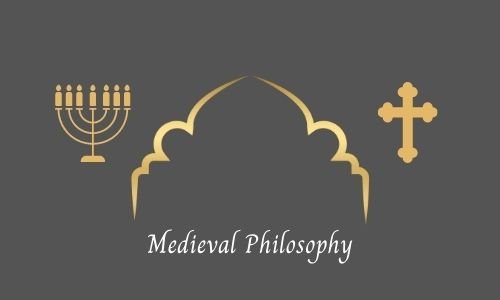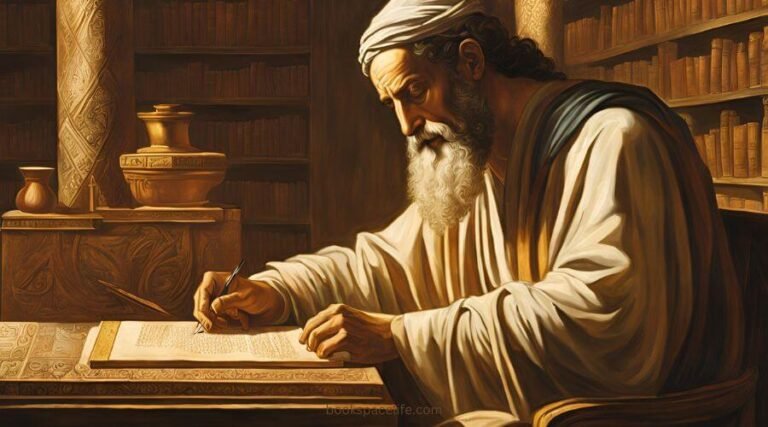Philo of Alexandria
Moses Cordovero: The Philosopher Who Shaped Kabbalistic Thought
Moses Cordovero (1522–1570 CE), also known as Ramak (from the initials of his Hebrew name), was one of the most prominent Jewish philosophers and kabbalists of the 16th century.
A figure central to the development of Kabbalah, Cordovero’s teachings brought a systematic and organized structure to Jewish mysticism, setting the foundation for the later works of the famous kabbalist Isaac Luria.
His intellectual legacy, particularly his integration of mysticism with ethics and rational thought, continues to influence Jewish thought, both within and outside the mystical tradition.
Table of Contents
(1) Early Life and Education
Isaac Abravanel was born in Lisbon, Portugal, in 1437, into a distinguished Jewish family. His father, Don Yitzhak Abravanel, was a wealthy financier and a leading member of the Jewish community, and Isaac’s family had strong ties to the nobility.
The Abravanel family had a long history of involvement in business and diplomacy, and Isaac was expected to follow in his father’s footsteps in both the economic and political spheres.
Abravanel’s early education was comprehensive and rigorous. As a young man, he was steeped in traditional Jewish texts, including the Bible, Talmud, and the Jewish legal codes (halakhah).
His intellectual curiosity was not confined to Jewish scholarship; he was also exposed to the broader intellectual currents of the time. Living in Portugal, he would have been familiar with Christian scholasticism, the works of Aristotle, and the philosophy of medieval Jewish scholars like Maimonides, whom he admired.
Abravanel’s education was thus grounded in both Jewish tradition and the intellectual developments of the surrounding Christian and Islamic worlds.
Beyond his formal education, Abravanel was highly influenced by the work of Jewish philosophers such as Saadia Gaon, Yehuda Halevi, and Maimonides.
In particular, Maimonides’ Guide for the Perplexed had a lasting impact on Abravanel’s thought.
However, Abravanel also felt the need to challenge and revise aspects of the earlier thinkers’ ideas, especially regarding the relationship between philosophy and Jewish theology.
(2) Travels and Political Engagement
Abravanel’s life was marked by significant political and social upheaval. In the mid-15th century, the Iberian Peninsula was a volatile place for Jews.
In 1492, as the Catholic Monarchs Ferdinand and Isabella of Spain completed their Reconquista and sought to unify Spain under Christian rule, they issued the Alhambra Decree, expelling all Jews from Spain.
Abravanel, a wealthy and politically influential individual, was deeply affected by this decree.
Before this momentous expulsion, however, Abravanel was already deeply engaged in the political world.
He served as a royal advisor to King Alfonso V of Portugal and was also involved in negotiations between the Portuguese monarchy and the Jewish community.
His diplomatic and political skills were instrumental in securing a favorable position for the Jews in Portugal for a time. However, his fortunes would change when the political situation shifted in Spain and Portugal.
In the aftermath of the expulsion from Spain, Abravanel moved to Italy, where he became involved in various political and academic circles.
He lived in several Italian cities, including Naples, Rome, and Venice, which were intellectual hubs during the Renaissance.
The political climate in Italy was complex, with various city-states vying for power, and Abravanel was involved in the diplomatic negotiations of the time.
This exposure to Renaissance humanism, with its emphasis on individualism, classical studies, and political philosophy, left a lasting mark on Abravanel’s thinking.
(3) Philosophical and Theological Contributions
Isaac Abravanel’s philosophy is characterized by a distinctive blend of Jewish religious thought and rationalism, tempered by his critical engagement with medieval Aristotelianism and Christian scholasticism.
His intellectual approach sought to reconcile Jewish faith with the philosophical principles of reason, drawing from the works of Maimonides, who emphasized the importance of rationality in understanding the divine.
One of Abravanel’s most important works is his commentary on the Bible, Rosh Amanah (“The Head of Faith”), in which he critiques the classical Jewish philosophical positions of his predecessors.
He argued against the purely allegorical interpretations of the Bible, as suggested by Maimonides, instead advocating for a more literal understanding of Scripture.
Abravanel’s view of the Torah was grounded in the belief that Jewish law was divinely revealed and its commandments should be interpreted with an eye toward practical and ethical living, rather than abstract philosophical principles.
In his famous commentary on the Book of Isaiah, Abravanel also introduced the idea that historical events were reflections of divine providence.
He viewed history not as a random series of events but as the unfolding of God’s will. In this sense, his theological perspective was heavily influenced by the belief that Jewish history had a divine purpose and that the Jewish people were chosen to fulfill a unique role in the world.
Abravanel’s political philosophy was equally innovative. He proposed a system of governance that emphasized the importance of wisdom and virtue in rulers.
He argued that political power should be entrusted to those who were morally and intellectually capable of leading the people, reflecting the influence of classical Greek thought on his views.
This idea was particularly important in the context of the turbulence in Spain and Italy, where political leaders were often more concerned with power than with wisdom or justice.
His focus on ethics in governance was a precursor to later political thought that would emerge during the Renaissance.
Additionally, Abravanel was a critic of the concept of divine determinism, which held that everything in the world was preordained by God.
While acknowledging the centrality of God’s will in the world, Abravanel strongly defended the idea of free will, particularly in relation to human morality.
For Abravanel, humans were not mere puppets of divine will but had the autonomy to choose their actions and, in doing so, fulfill or hinder their role in the divine plan.
(4) Abravanel’s Influence and Impact
Isaac Abravanel’s influence was significant both within the Jewish community and beyond. His works were widely read and studied by later Jewish philosophers, and his commentaries on the Bible became central texts in the study of Jewish thought.
Abravanel’s ability to bridge the gap between Jewish tradition and Renaissance humanism made his works particularly influential in both the Jewish and Christian intellectual worlds.
His ideas on politics and governance also had a lasting impact on later political thought.
His belief in the importance of wise and virtuous rulers contributed to the intellectual development of political theory in the Renaissance and beyond.
His work on the relationship between divine providence and human free will was a precursor to later debates in philosophy and theology about the nature of human agency and divine intervention.
Moreover, Abravanel’s contributions to Jewish thought helped shape the Jewish community’s intellectual responses to the challenges posed by the Christian and Islamic worlds.
His defense of Judaism against the critiques of Christian theologians helped establish him as one of the most important Jewish defenders of faith during a time when Jews were subject to intense pressure to convert.
His works, especially those on the Bible and Jewish law, provided a foundation for later Jewish thinkers, including those of the Renaissance and the early modern period.
(5) Legacy
Isaac Abravanel’s legacy is one of intellectual depth and spiritual resilience. His ability to synthesize Jewish tradition with philosophical and scientific advancements of his time marked him as one of the great Jewish thinkers of the late medieval period.
His life in exile, after the expulsion of Jews from Spain, serves as a testament to his intellectual strength and his enduring commitment to Jewish faith and culture.
Today, his works remain an important part of Jewish philosophical and theological study, influencing both religious and secular scholars across generations.
His ability to grapple with the complexities of Jewish law, theology, and philosophy in the context of the social and political upheavals of his time makes him one of the most distinguished Jewish philosophers in history.
By melding Jewish scholarship with the broader intellectual currents of Renaissance humanism, Abravanel helped lay the groundwork for the Jewish Enlightenment (Haskalah) that would follow centuries later.
His philosophical writings continue to be studied for their profound insights into the nature of God, history, politics, and human freedom.
(6) Conclusion
Isaac Abravanel’s intellectual legacy is vast and multifaceted. His philosophical and theological works, which sought to reconcile Jewish faith with reason and political thought, continue to be studied and respected.
Through his commentaries, his theological reflections, and his political writings, Abravanel left an indelible mark on Jewish thought, Renaissance humanism, and political philosophy.
His life’s work, done amid profound personal and communal challenges, demonstrated the resilience of Jewish intellectual tradition and its capacity to engage with and contribute to broader cultural and philosophical developments.
As one of the key Jewish thinkers of his time, Abravanel’s legacy remains influential in both the Jewish and intellectual worlds.








